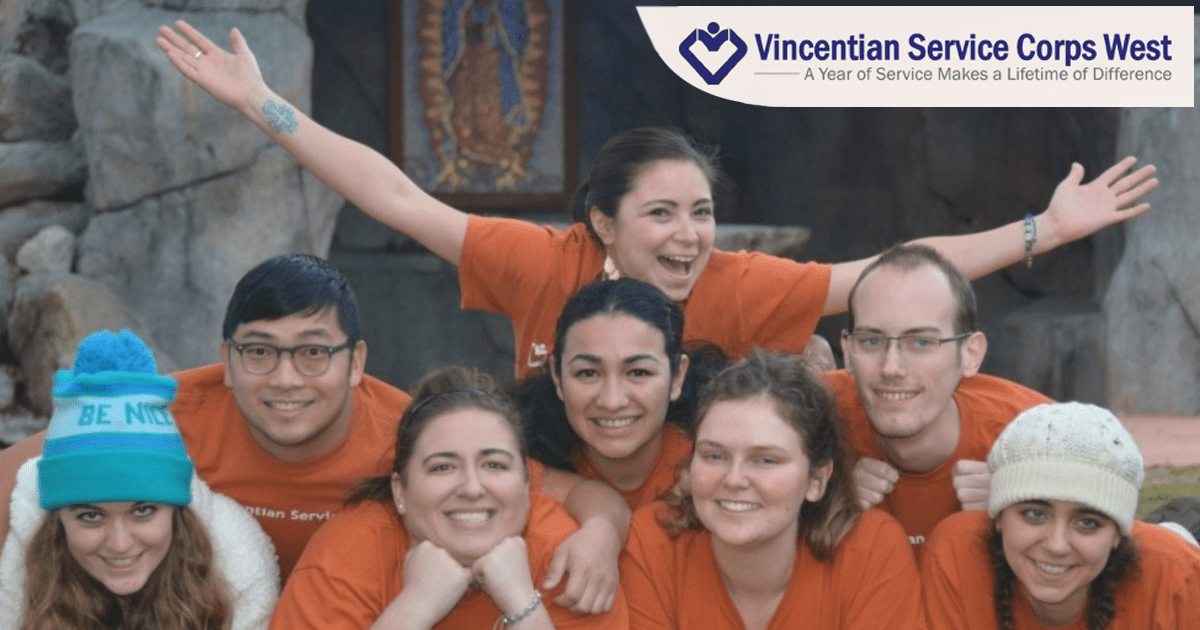Servant Leadership; “To serve and not to be served” Mt. 20-28
NON SEQUITUR @2013 Wiley Ink, Inc. Dist. By UNIVERSAL UCLICK. Reprinted with permission. All rights reserved.
You shouldn’t need a slap upside the head to realize that you are called to be a Servant Leader. Sr. Alicia Martin, D.C. led the January Reflection Weekend for the present members of VSC West. (Vincentian Service Corps West). She explored the “heart and the manner” of our eight members who are doing a year of service in their respective placement sites in San Francisco and Los Angeles.
According to John Greenleaf, the philosophical beliefs and set practices of Servant Leadership enrich the lives of individuals, build better organization and ultimately create a more just and caring world. The key characteristics of a Servant Leader are listening, healing, empathy, awareness, persuasion, vision, foresight, stewardship, commitment to the growth of people, and building community. To learn and to live out these qualities takes a lifetime, not only beyond retirement but also to one’s last breath. 
St. Louise de Marillac told her sister companions, “If God brought you to it, He will see you through it.” St. Vincent de Paul also reminded the sisters and his brother priests to keep in mind “to give one’s heart first and then do the work.” Vincent’s words of encouragement always refer back to the first servant leader, Jesus, who acted with much prudence and circumspection, a characteristic of leadership in which he excelled.

January Reflection Weekend, St. Anthony Retreat Center, Three Rivers, CA
The VSC West members, as young as they are, have a natural desire to serve others. Many people are amazed to know and see that these millennials (born in 1982 or later) have a sense of willingness to sacrifice their self-interest for the sake of others, as they commit to doing a year of service, after graduating from college. This may seem hard to understand given the reality of college loans they have incurred. In 2012, CVN (Catholic Volunteers Network) commissioned CARA (Center for Applied Research in the Apostolate) to do a study to understand and document the transformative effect of the volunteer experiences of the alumni. The study reported that 92% of almost 25,000 who participated, said that social justice is an important value in their life. Granted that this study was focused on those who have served in the past, these young adults have taken the lead in modeling the importance of becoming visionaries: to dream the dream and show the way to others who will follow. (Please note: More than half of the former volunteers that participated in the study were born in 1984 or later.)
More than ever, all servant leaders must elicit the trust of those they serve. To walk the talk is not easy. Whether we are serving or being served, we need to communicate the vision and mission of our organizations to build community. St. Vincent helped people spiritually, professionally and personally. He saw the good in those he served and those who served with him. DO WE DO THE SAME?
Contributed by Sister Frances Vista, D.C., Director
All ideas, thoughts, quotes, were taken from:
Greenleaf; Servant Leadership: A Journey into the Nature of Legitimate Power and Greatness, 1977, New York: Paulist Press
Writings of St. Vincent de Paul
Books about St. Vincent de Paul
Barbuto, John, Jr. and Wheeler, Daniel
“Becoming a Servant leader: Do You Have What It Takes?”
CARA, Center for Applied Research in the Apostolate, Volunteer Introspective 2014








0 Comments